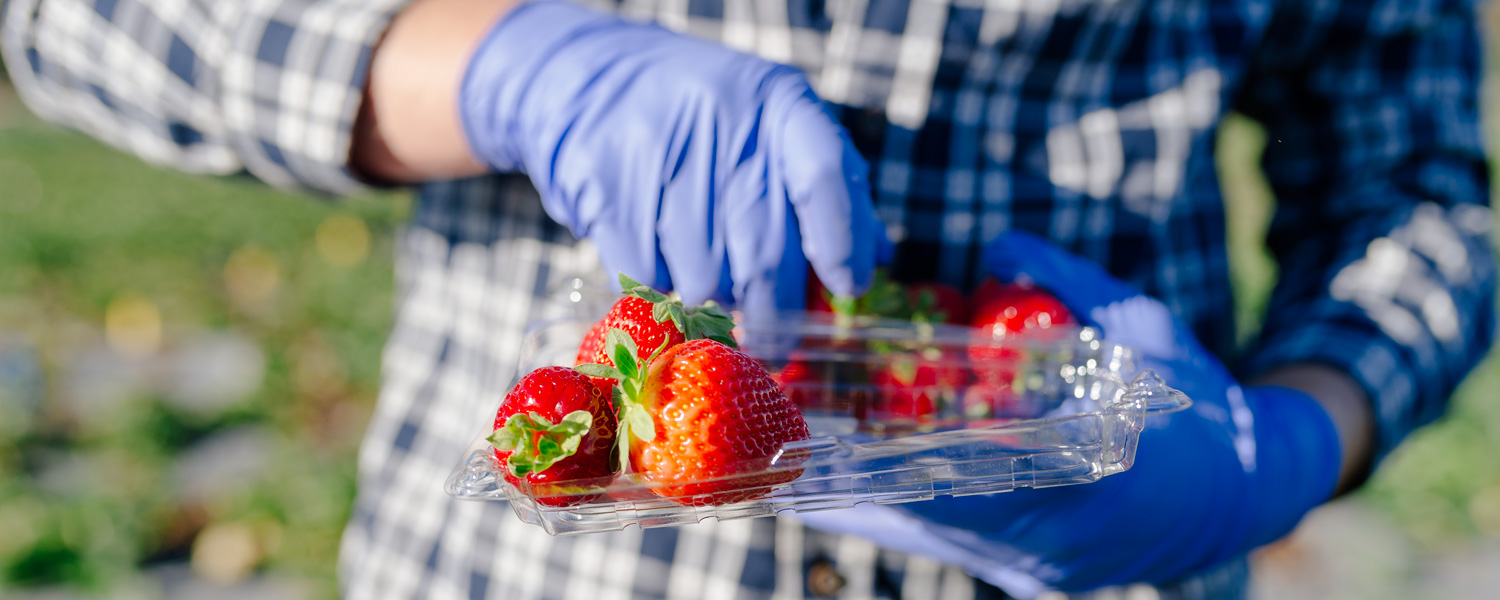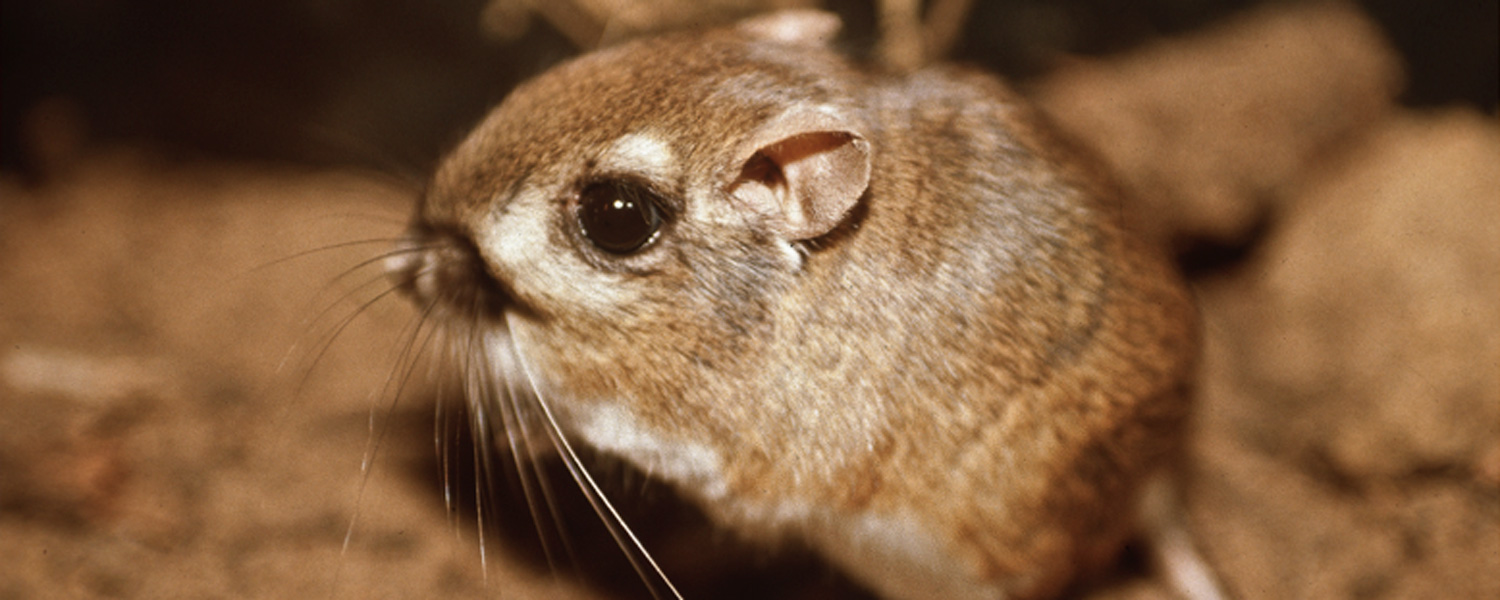cal poly news
Bearing Fruit
AnnMarie Cornejo

As dark green rounded leaves start to grow and red strawberries appear at Cal Poly’s organic farm, students eagerly await the next phase of research. The Cal Poly Strawberry Center is conducting its first experiment with organic strawberries. More than 14,000 plants, about half an acre, were planted in July at the university’s organic farm — and those plants are now bearing fruit.
“The objective is to evaluate the effects cover cropping may have on disease suppression,” said Gerald Holmes, director of the Cal Poly Strawberry Center and an experienced plant pathologist. “There was evidence that wheat planted as a cover crop would suppress certain diseases and we wanted to test that hypothesis by using it to suppress one of the most common threats to strawberry plants.”
The two-day task required stooping, squatting, and squeezing soil around each plant and making sure that each one was placed at the right depth. In the true spirit of Learn by Doing, a team of 10 people planted the entire field of strawberries.
The trial was months in the making, with cover crops of wheat and barley methodically planted in the same location six months prior.
Strawberries remain one of the top three valued crops in California, estimated at $2.4 billion. The Cal Poly Strawberry Center, in partnership with the California Strawberry Commission, is researching alternative methods to control disease and pests.
The organic strawberry research included one additional step: using rice bran, plastic mulch and water to deprive the soil of oxygen, a process called anaerobic soil disinfestation, in planned segments of the strawberry field. The plants will be studied through the summer.
The team of undergraduate and graduate student researchers are particularly interested in a disease called Verticillium wilt – a widespread, soil borne disease of strawberry plants that is a challenge industry wide. Until recently, strawberry farmers controlled the disease using soil fumigation with methyl bromide. However, use of that fumigant is now banned.
The Strawberry Center collaborated with Professor Ashraf Tubeileh of the Horticulture and Crop Science Department for the project. Tubeileh oversees the organic farm for the College of Agriculture, Food and Environmental Sciences.
Ryan Gilmour, a senior agricultural and environmental plant sciences major, is using the experiment as his senior project. “The best part about being involved in a project of this magnitude is that what I am doing will make a big impact on the industry I will be working in,” Gilmour said.





